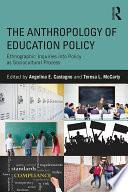
Pendidikan Anak Usia Dini
- ISBN 13 : 9786232313439
- Judul : Pendidikan Anak Usia Dini
- Pengarang :
- Penerbit : PT RAJAGRAFINDO PERSADA
- Bahasa : Indonesia
- Tahun : 2020
- Halaman : 256
-
Ketersediaan :
008764 Tersedia di Library of UI BBC

| 008764 |
Tersedia di Library of UI BBC
|

Calling for nothing less than a radical reform of family law and a reconception of intimacy, The Neutered Mother, The Sexual Family, and Other Twentieth Century Tragedies argues strongly against current legal and social policy discussions about the family because they do not have at their core the crucial concepts of caregiving and dependency, as well as the best interests of women and children. The Neutered Mother scrutinizes the definitions of family and mother throughout the volume while paying close attention to issues of race, class and sexuality. In addition, Fienman convincingly contests society's refusal to dignify, support and respond to the needs of caregivers and illustrates the burden they must bear due to this treatment. This book is a crucial step toward defining America's most pressing social policy problems having to do with women, motherhood and the family.
This book is a crucial step toward defining America's most pressing social policy problems having to do with women, motherhood and the family.

Advancing a rapidly growing field of social science inquiry—the anthropology of policy—this volume extends and solidifies this body of work, focusing on education policy. Its goal is to examine timely issues in education policy from a critical anthropological, ethnographic, and comparative perspective, and through this to theorize new ways of understanding how policy "does its work." At the center is a commitment to an engaged anthropology of education policy that uses anthropological knowledge to imagine and foster more equitable and just forms of schooling. The authors examine the ways in which education policy processes create, reflect, and contest regimes of knowledge and power, sorting and stratifying people, ideas, and resources in particular ways. In contrast to conventional analyses of policy as text-based, dictated, linear, and rational, an anthropological perspective positions policy at the interface of top-down, bottom-up, and meso-level processes, and as de facto and de jure. Demonstrating how education policy operates as a social, cultural, and deeply ideological process "on the ground," each chapter clearly delineates the implications of these understandings for educational access, opportunity, and equity. Providing a single "go to" source on the disciplinary history, theoretical framework, methodology, and empirical applications of the anthropology of education policy across a range of education topics, policy debates, and settings, the book updates and expands on seminal works in the field, carving out an important niche in anthropological studies of public policy.
Advancing a rapidly growing field of social science inquiry—the anthropology of policy—this volume extends and solidifies this body of work, focusing on education policy.

The relatively new sukuk (or Islamic debt securities) markets have grown to more than US $800 billion over the past decade, and continue to grow at a rate of around 20-30 per cent per year. Arguably the first of its kind, this path-breaking book provides a highly unique reference tool relating to key issues surrounding sukuk markets, which are found in 12 major financial centres, including Kuala Lumpur, London and Zurich. The internationally renowned contributors present an in-depth study of sukuk securities, beginning with a comprehensive definition and history. They go on to discuss Islamic financial concepts and practices that govern how sukuk securities are issued, how markets are carefully regulated to protect investors, and how securities are designed to safeguard invested money. The prospects and challenges of developing sukuk Islamic debt markets across the world are also illustrated. This comprehensive guide to sukuk markets will prove a fascinating and useful reference tool for academics, students, researchers and practitioners with an interest in Islamic finance, and, more specifically, in the nascent field of sukuk securities.
marketing. and. listing. of. sukuk. securities. Mohamed. Ariff. and. Shamsher. Mohamad1. 12.1. INTRODUCTION. The first Malaysian sukuk as a new Islamic financial debt security was issued as a private sector issue by Shell Company (M) ...

Bingung menghadapi situasi dimana uang datang dan pergi begitu saja? Mungkin ada yang terlewat yang belum Anda ketahui. Hal sederhana yang juga digunakan oleh orang-orang yang sudah lebih dulu kaya. Hal itu adalah... Cara mengendalikan uang! Di buku ini dibahas tuntas bagaimana cara untuk membuat uang mengalir masuk dan sulit keluar. Bukan jadi pelit ya, tapi terkendali. Bicara soal teknis dan non teknis untuk membuat Anda memahami bagaimana uang bekerja. Untuk apa? supaya tidak kekurangan tentunya. Sehingga hidup Anda bisa lebih tenang dan juga bisa membantu orang lain. Segera miliki e-book ini dan dapatkan manfaatnya! MinFin Rektor FinGram Indonesia Belajar Uang, Dapat Uang
Bingung menghadapi situasi dimana uang datang dan pergi begitu saja?



PLANNING AND ASSESSMENT IN HIGHER EDUCATION Demonstrating Institutional Effectiveness In this era of increasing pressure on higher education institutions for accountability, Planning and Assessment in Higher Education is an essential resource for college and university leaders and staff charged with the task of providing evidence of institutional effectiveness. Michael F. Middaugh, a noted expert in the field, shows how colleges and universities can successfully measure student learning and institutional effectiveness and use these results to create more efficient communications with both internal and external constituencies as well as promote institutional effectiveness to support student learning. "How can the assessment of institutional effectiveness be used to provide a solid foundation for planning? Middaugh has crafted a comprehensive, practical guide that also explains what accrediting agencies really want and need to know about these topics." —Elizabeth H. Sibolski, executive vice president, Middle States Commission on Higher Education "Only Michael Middaugh, the unquestioned national leader in this field, could write such a lucid overview of how to make institutional assessment and planning really work as a tool rather than as a tedious requirement. He helped invent and shape the focus of national assessment rubrics and now offers his insights into how to make them work for your institution." —John C. Cavanaugh, chancellor, Pennsylvania State System of Higher Education "Middaugh provides extremely helpful and practical guidance and insights on how colleges and universities can use assessment tools and frameworks to improve both academic programs and administrative operations. A valuable and timely book for all higher education leaders." —James P. Honan, senior lecturer on education, Harvard Graduate School of Education
PLANNING AND ASSESSMENT IN HIGHER EDUCATION Demonstrating Institutional Effectiveness In this era of increasing pressure on higher education institutions for accountability, Planning and Assessment in Higher Education is an essential ...

In this case , the PTC will provide the professional and practice orientation they need , implying that Phase 2 of teacher training will be unnecessary . All that is important in this case is the accreditation of the courses offered at ...

"Teacher Education throughout Europe is in a process of change. The reform of school structures, changing demographic patterns, technological development and the evolution of social, economic and political structures have all contributed to this process." "This handbook, published in conjunction with the Council of Europe, creates a synthesis of these trends, providing both an overview of teacher education across Europe and detailed explorations of key issues by leading experts in the field."--BOOK JACKET.Title Summary field provided by Blackwell North America, Inc. All Rights Reserved
" "This handbook, published in conjunction with the Council of Europe, creates a synthesis of these trends, providing both an overview of teacher education across Europe and detailed explorations of key issues by leading experts in the ...